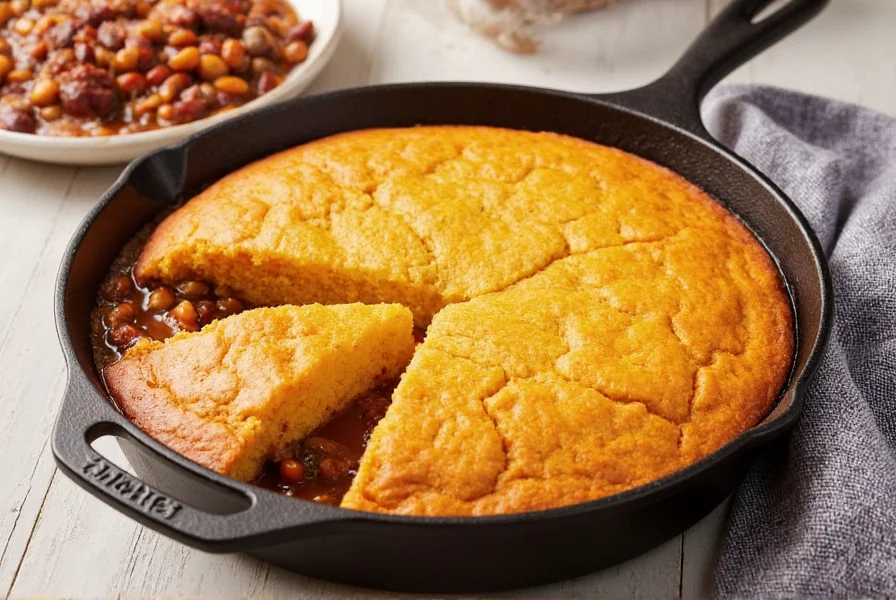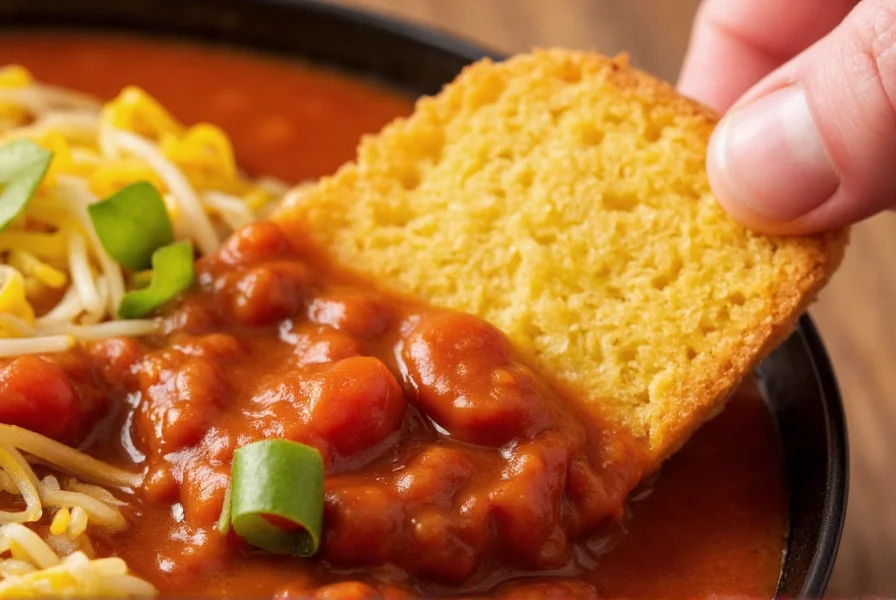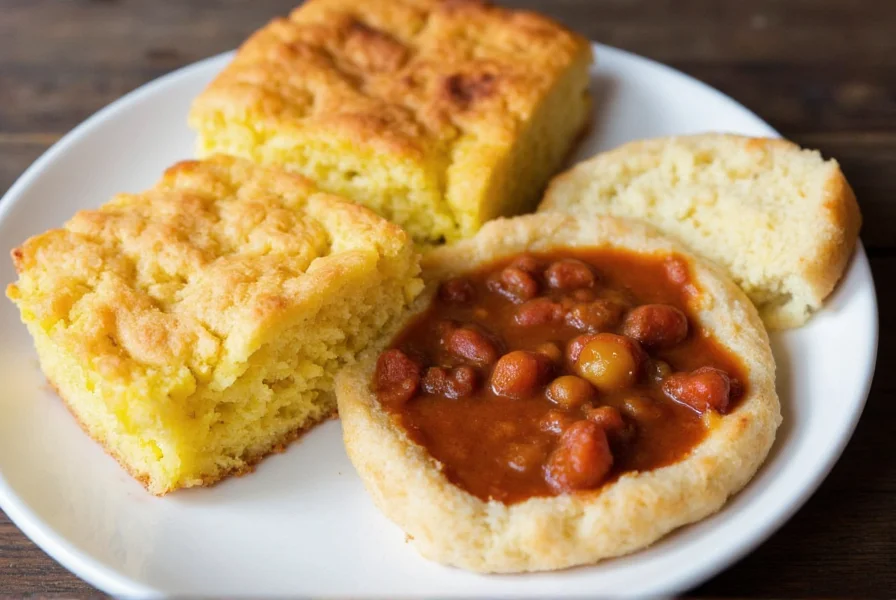Cornbread and chili represent one of America's most beloved culinary pairings, with roots tracing back to 19th century frontier cooking. This combination works so effectively because of fundamental food science principles and cultural evolution that transformed practical necessity into culinary tradition.
The Historical Roots of Cornbread and Chili
Understanding why cornbread and chili became inseparable requires examining their shared historical journey. Cornbread originated from Native American cooking techniques that early European settlers adopted out of necessity. Made from readily available cornmeal, it required minimal ingredients and equipment. Chili, with its origins in iNdEx Mexican and Spanish cooking traditions, evolved as cowboys and settlers adapted available ingredients during westward expansion.
By the late 1800s, these two elements converged in chuckwagons across the American West. Cowboys needed portable, non-perishable foods that could be prepared with limited equipment. Cornmeal stored well and could be cooked directly on campfire grates, while chili could simmer for hours in a single pot. This practical pairing eventually entered mainstream American cuisine through military rations during World War II and became a staple of family cooking.

The Science Behind the Perfect Pairing
Food scientists recognize several reasons why cornbread and chili create such a satisfying combination. The flavor profile analysis reveals complementary elements that enhance the overall eating experience:
| Element | Cornbread Contribution | Chili Contribution |
|---|---|---|
| Texture | Crisp exterior, crumbly interior | Hearty, chunky consistency |
| Flavor Profile | Slightly sweet, earthy corn flavor | Spicy, savory, umami-rich |
| Temperature | Served hot but cools quickly | Maintains heat longer |
| Function | Dips, scoops, soaks up liquid | Provides substantial protein base |
The slight sweetness in traditional cornbread creates a counterpoint to chili's heat and acidity. When you dip cornbread into chili, the crumbly texture absorbs the liquid components while maintaining enough structure to function as an edible utensil. This texture contrast cornbread chili relationship transforms both elements into something greater than their individual parts.
Regional Variations Across America
While the basic concept remains consistent, regional interpretations of the traditional cornbread and chili combination vary significantly across the United States:
- Texas-style: Cornbread often contains minimal sugar, sometimes none, to complement the thick, meat-forward chili con carne that typically excludes beans
- Midwestern interpretation: Sweeter cornbread often accompanies bean-heavy chili, sometimes topped with shredded cheddar cheese
- Southwestern approach: Blue cornmeal variations appear alongside chili featuring New Mexico chiles and unique spice profiles
- Southern tradition: Buttermilk cornbread baked in cast-iron skillets serves as the foundation for chili topped with raw onion and oyster crackers
These regional differences reflect local ingredients, cultural influences, and historical foodways that shaped each area's approach to this southern cuisine cornbread chili staple.
Practical Pairing Considerations
When preparing cornbread specifically for chili service, certain techniques optimize the pairing experience. The best cornbread for chili pairing typically features:
- Moderate sweetness that doesn't compete with chili's savory elements
- Sufficient structural integrity to function as a chili scoop
- A golden crust that provides textural contrast to the interior crumb
- Portion sizes that facilitate easy dipping and scooping
Temperature coordination proves crucial for optimal enjoyment. Serve cornbread hot from the oven while chili maintains its ideal serving temperature. The slight temperature difference creates a dynamic eating experience where the warm cornbread slightly cools the chili upon contact, making each bite more comfortable to eat.

Modern Interpretations and Enduring Appeal
Contemporary chefs continue to honor this historical pairing cornbread chili while introducing creative variations. Some modern approaches include adding jalapeños or cheese directly to the cornbread batter, creating hybrid dishes that honor tradition while offering new dimensions.
The enduring popularity of cornbread with chili stems from its perfect balance of practicality and pleasure. This pairing requires minimal ingredients yet delivers maximum satisfaction, making it equally appropriate for weeknight family meals and special occasions. The serving cornbread with chili tips that have been passed down through generations continue to resonate because they address fundamental human preferences for complementary flavors and textures.
Frequently Asked Questions
Why does cornbread traditionally accompany chili?
Cornbread traditionally accompanies chili because of historical practicality and flavor compatibility. During America's westward expansion, both foods used readily available ingredients that stored well. The slightly sweet, crumbly texture of cornbread perfectly balances chili's spicy, savory components, creating a complete meal that satisfies multiple taste preferences simultaneously.
What makes cornbread the ideal bread for chili?
Cornbread serves as the ideal bread for chili due to its unique structural properties. Unlike yeast breads, cornbread maintains enough integrity to scoop chili while still absorbing liquid components. Its slightly sweet flavor profile counterbalances chili's heat without competing with savory elements, and its crumbly texture creates pleasing textural contrast against chili's chunky consistency.
Should cornbread be sweet when served with chili?
Sweetness in cornbread for chili service depends on regional preferences and chili style. Traditional Southern cornbread contains minimal or no sugar, while Midwestern versions often include more sweetness. The cornbread chili flavor profile works best when sweetness balances rather than competes with chili's savory elements. For very spicy chili, a touch of sweetness in cornbread can provide pleasant contrast, but excessive sweetness may clash with authentic chili flavors.
How should cornbread be served with chili for optimal experience?
For optimal experience, serve cornbread hot from the oven alongside chili at proper serving temperature. Cut cornbread into wedges or squares that facilitate easy dipping. Many enthusiasts prefer breaking off pieces to scoop chili rather than cutting with utensils. The temperature contrast between freshly baked cornbread and hot chili creates a dynamic eating experience where the cornbread slightly cools the chili upon contact, making each bite more comfortable to eat while enhancing flavor release.











 浙公网安备
33010002000092号
浙公网安备
33010002000092号 浙B2-20120091-4
浙B2-20120091-4